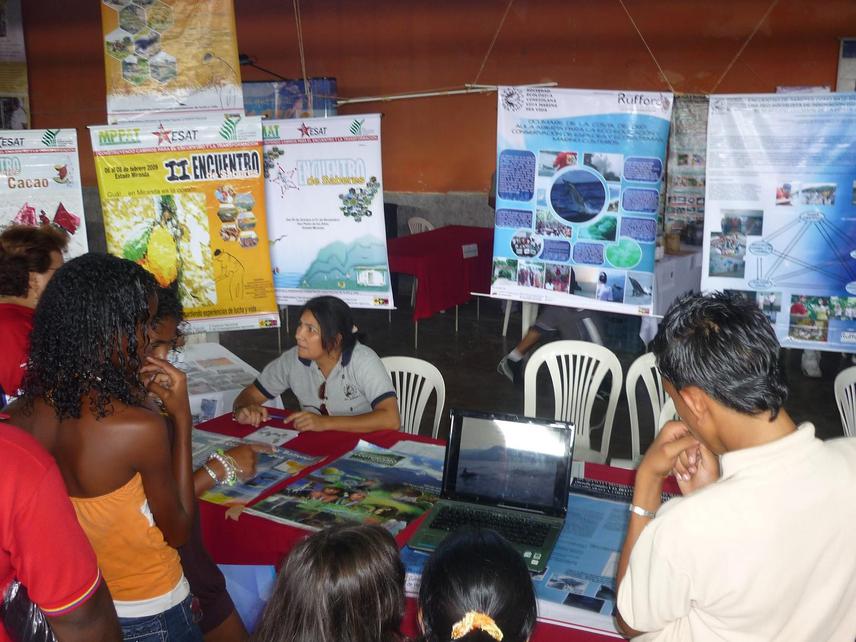Jaime Bolaños-Jiménez
Other projects
11 Nov 2007
Empowering Local Communities for Responsible Development of Whalewatching in the Central Coast of Venezuela
To provide educators with knowledge on the importance of local marine ecosystems and emblematic species for the welfare of the local communities and for the life in general.

Jaime and his team helped empower and sensitize local leaders and entrepreneurs in Ocumare de la Costa de Oro of the importance of dolphin watching and ecotourism to improve their welfare on the basis of responsible management of their natural heritage. Participation of local educators in these activities has been the foundation for an innovative educational approach, in which local marine ecosystems are being used as a classroom for students to learn about biology, ecology, mathematics, foreign languages, social sciences and other academic subjects.
Currently, this approach has been endorsed by Fundacite Aragua/People's Ministry of Science, Technology and Intermediate Industries and representatives of the regional branches of the People's Ministry of Education in the States of Aragua, Carabobo and Guárico.
During April-May 2009, local educators of the César Zumeta High School Science Centre in Ocumare, with advice and support from Sea Vida’s team, directed lectures and marine excursions to watch dolphins and appreciate local marine habitats to 317 pupils of three local high schools, 15 pupils of a special regional high school for teens with disabilities and 28 teachers.
The results of these activities were disseminated to the general public and covered by the local media, which increased the demand for participation in these activities by representatives of additional institutions in Ocumare, Maracay City (the capital of the State of Aragua), San Juan (Guárico) and Valencia (Carabobo). For the upcoming activities, the main potential participants are teachers and students in seven high schools in Ocumare and 45 High School Science Centres and other schools in central Venezuela. Also, Jaime, his team and the local leaders share the belief that scientific research is a very powerful foundation for their program and they have continued to participate in the gathering, dissemination and divulgation of the results of their field projects on the status of local dolphin populations inhabiting the State of Aragua.
Their study on photo-identification of dolphins to evaluate their population status is the first of its kind ever conducted in Venezuela and has been greatly enriched because of participation of Oceanographer Lenín Oviedo, a Rufford grantee, to help interpret the results. They have confirmed the residency pattern of a proportion of dolphin populations and attended the XVIII Biennial Conference on the Biology of Marine Mammals, held in Quebec City, Canada, during 12-16 October 2009 to present their results to the scientific community.